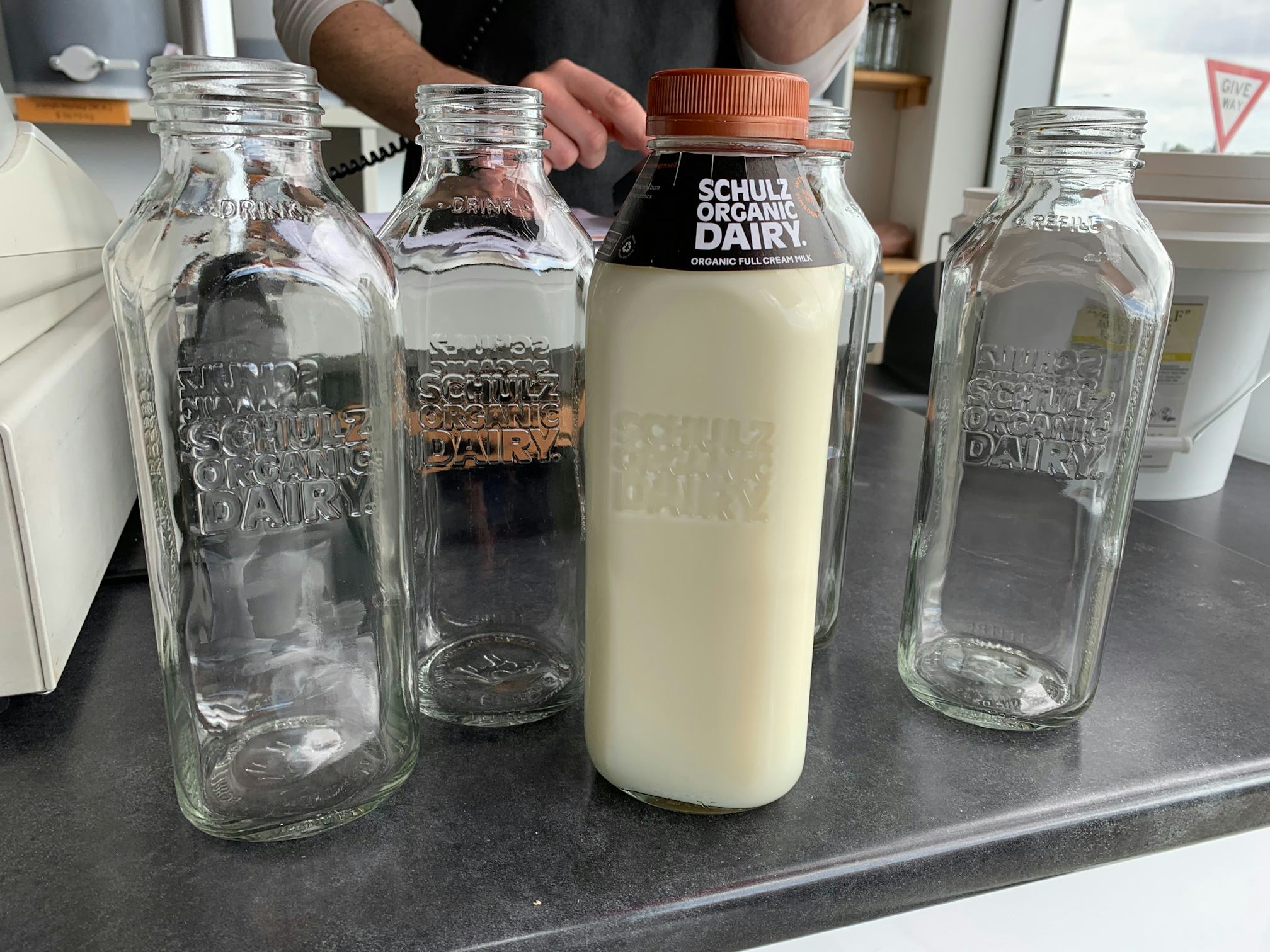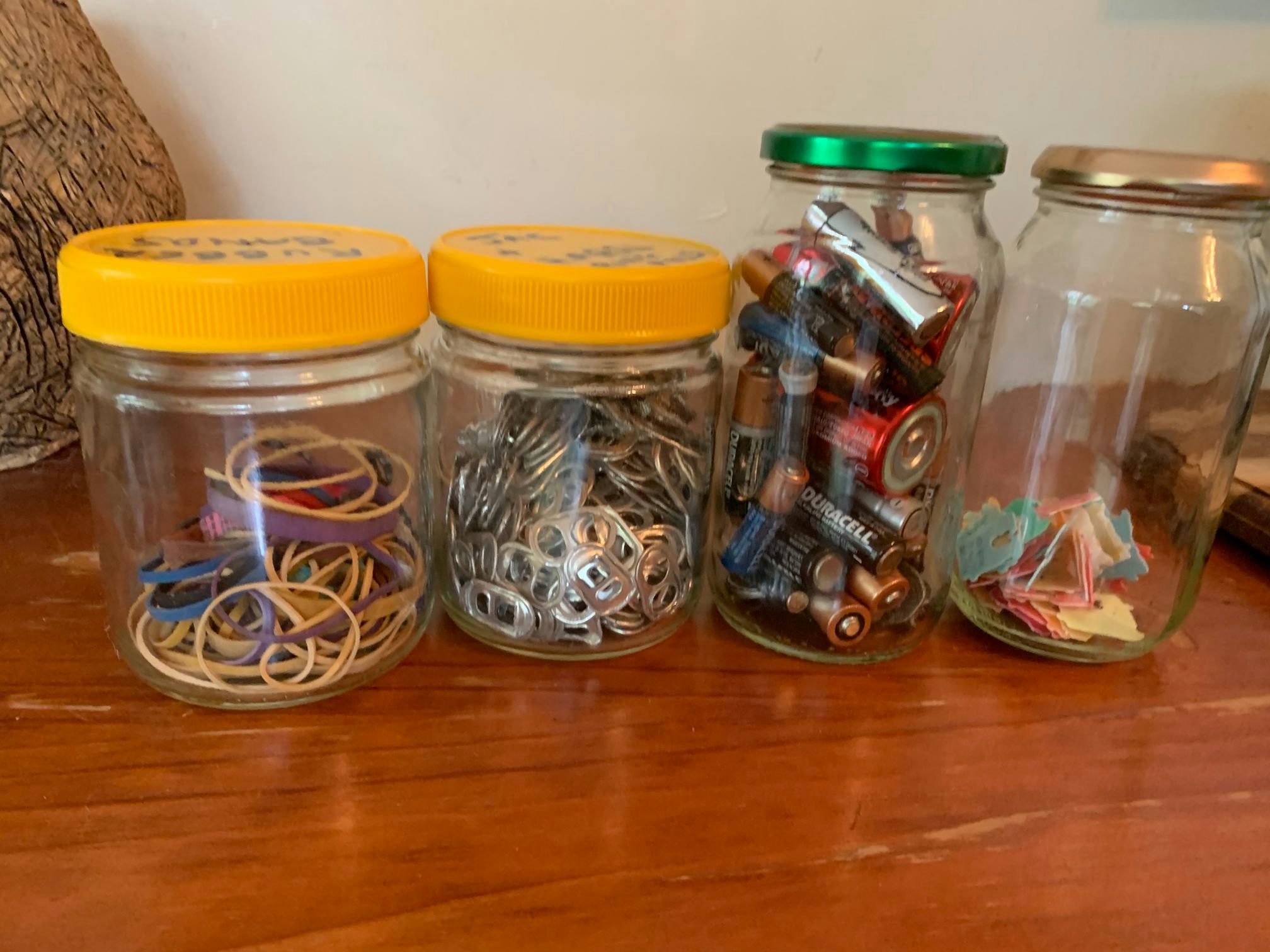This year has thrown some curveballs our way, but it has also required us to pause, think about what we want our future to look like and reset accordingly. For National Recycling Week this year we are looking ahead to our Future Beyond the Bin, where materials remain in circulation and what was once seen as waste is understood as resource. To that end, we are asking Australians from all walks of life to share their inspiring stories of how they #gobeyondthebin at work, home, school and in the community.
For Liz Arnott, there is no secret trick to reducing waste. “The first thing is just to seriously think about what you’re picking up off the shelf,” she explains. “Do you really need it and, if you do, if it’s in ridiculous packaging, is there another way you can get it?”
This moment of reflection can feel unnatural in our fast-paced world, but for Liz it has been crucial to cutting her household’s waste dramatically. Liz lives in the Melbourne suburb of Ringwood North with her husband Brian Canty and their dog Specky. Between the three of them, they’ve only taken out one general waste bin each year since 2018 while the recycling bin goes out every 6-8 weeks.
Liz follows the waste hierarchy by refusing to buy products in plastic packaging and reducing what she purchases where possible. As consumers, she says we can vote with our dollar to incentivise businesses to provide sustainable alternatives to single-use plastic packaging.
“If you stop buying [products in plastic packaging], it gets the message across to businesses that people don’t want it in that single-use packaging anymore,” she says. “If we stop buying it then they’ll maybe start to make it available in an environmentally-friendly way.”
“We can’t do this all the time, it’s just not practical all the time. We are living in this world, so yes, we do have to buy things sometimes where I’m just like, ‘Argh, this is one of those stupid packets’,” she adds. “Nobody’s perfect, but if everybody can do something all those everybody’s make a difference.”
Where Liz’s waste journey started:
“[I realised] just what a ridiculous amount of rubbish a household can produce. And when you start thinking about the whole thing… it’s just so horrible to think about. The contribution one house can make, and then you start multiplying that by your area, and then your city. That was what blew my mind, that was astounding, I was just like, ‘I can’t keep doing this’.”

What Liz does to reduce her waste:
“We try and reduce that at the point of purchase as much as possible. When we need something. Well, first of all we figure out if we really need it and, if we do, is it something we can get second-hand? Is it something that we’re only going to need for a little while so we can borrow instead?
I refuse to buy any fresh produce that’s in packaging, particularly single-use plastic that can’t even be recycled. I just don’t buy it. We’re fortunate enough to have a bulk food shop in the local area so for things like dishwashing liquid, dishwasher powder, laundry detergent, cooking oils, vinegars, peanut butter and then going into all the dry herbs, spices, flour, nuts, sultanas. All that sort of thing I can get there in my own bags or containers.
Again, it’s at the [point of] purchase, thinking about what something is packaged in and trying as much as possible to reduce what’s coming in the house that will need to either go into recycling or the bin.”


How Liz goes #beyondthebin:
“Before anything goes into recycling or the bin it gets looked at, thought about, ‘What else can I do with this’… Or maybe if it’s broken we would think, ‘Okay, maybe there’s somebody who could repair this’. We’re always sewing up repairs to make things last longer. Basically, just like the old days when you fixed it or you got somebody else to fix it for you.
For example, I had a sentimental t-shirt beyond repair, so I bought a cushion from the op shop and used the t-shirt pieces to make a cover for it. That’s a daggy example and I had to buy a cushion from the op shop, so in a sense I still had to buy something, but the t-shirt got repurposed.
I find places for other things in particular groups I’m in on Facebook. There might be people looking for corks, there might be people looking for anything else. A lot of us talk about that drawer we have full of things that we know we’re going to find someone who’s after them one day.
And then there’s the e-waste which can get recycled through places like Officeworks. Council buildings and shire offices also have places where you can take light globes, batteries, even things like x-rays, old reading glasses, CDs, all manner of things. And all these things are really easy to find with a little bit of research on Recycling Near You or Tech Collect.
I do usually have a little bit of stuff waiting to go somewhere because I won’t drive 10kms to drop off a light globe. There are so many places [to drop off items]. Even really silly things, I have a continuing little bag of pieces of ribbon, things that come off flowers or presents and buttons and odd things like that because a lot of craft shops and craft suppliers or knitting and craft groups are after that sort of thing.”

National Recycling Week takes place from November 9-13. For more information and to find out how you can get involved, head here.